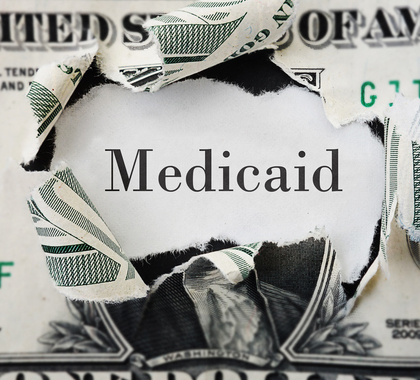The Republican-controlled New Hampshire House of Representatives voted 216–145 to extend the state’s expanded Medicaid program through 2018, provided the federal government pays its share of the expansion costs.
New Hampshire lawmakers first expanded Medicaid in 2014, but they did not write their decision in stone. The legislature scheduled the program to sunset in 2016, the last year the Affordable Care Act (ACA) binds the federal government to pay 100 percent of Medicaid expansion costs for newly eligible enrollees.
House Bill 1696, which was passed March 9, would extend the program for two years. The federal share of Medicaid expansion costs will drop to 94 percent in 2018, on its way to 90 percent in 2020. The bill would require recipients to perform 30 hours per week of work-related activity.
Proponents claim the $25.2 million state share of covering 47,500 eligible individuals in 2018 would be paid for by a premium tax on insurance companies and voluntary contributions from insurers and hospitals.
Handshake Agreement
State Rep. Allen Cook (R-Rockingham County) says the claim taxpayers will not have to foot the bill is ridiculous.
“Of course we’re going to pay for it,” Cook said. “The truth is there is nowhere in writing from one single hospital or one single insurance company that they’ll pay for it. We were told it was a handshake. It’s symbolically an agreement, a handshake done behind closed doors. That’s the terminology we were told, but nothing is in writing.”
Cook says the state share of Medicaid expansion, which the bill’s fiscal note estimates as $47.2 million in 2020, puts the notable tax advantage New Hampshire’s citizens now enjoy at risk.
“This will ultimately be the first taxation that we have in New Hampshire,” Cook said. “We pride ourselves on being tax-free, except for land tax, but there’s going to be taxes to pay for this. The hospitals say they are going to help. The insurance companies say they are going to help. Where are they going to get the money? They’re going to up your premiums and your expenses.”
Work Requirements … Won’t
Greg Moore, New Hampshire state director of Americans for Prosperity, says the bill’s weak work requirements leave taxpayers vulnerable to exploitation.
“They keep on saying that there is a work requirement,” Moore said. “With the severability clause that’s in the bill, all it takes is anyone at the court level or federal level—anyone who files a lawsuit—to basically block the work requirement. By keeping that severability clause, New Hampshire does not have a real work requirement.”
Moore says in a state with an unemployment rate of 3.8 percent and “‘help wanted’ signs jumping out at you,” it doesn’t make sense to provide “a new welfare benefit to people, 57 percent of whom are unemployed.”
In addition to reducing incentives to work, Medicaid expansion lowers incentives to make sound personal health care decisions, Moore says.
“The vast majority of these folks on Medicaid over-utilize emergency care because there’s no disincentive for them not to,” Moore said. “If you’re on Medicaid, there are no copays and deductibles, and if there are, there are no consequences if you don’t pay them. There isn’t a deductible or copay, in reality.”
HB 1696 requires newly eligible adults to make $8 copayments for their first emergency room visit for non-emergency purposes and $25 for subsequent non-emergency visits. The state’s Senate is expected to pass the bill this session, which ends June 30.
Kimberly Morin ([email protected]) writes from Brentwood, New Hampshire.
Internet Info:
Michael Hamilton, “Post-Op Policy Debrief: ‘Nontraditional’ Medicaid Expansion,” Health Care News, The Heartland Institute, March 1, 2016: https://heartland.org/news-opinion/news/post-op-policy-debrief-nontraditional-medicaid-expansion https://heartland.org/news-opinion/news/post-op-policy-debrief-nontraditional-medicaid-expansion
Image via Thinkstock
This story was updated March 14, 2016.




